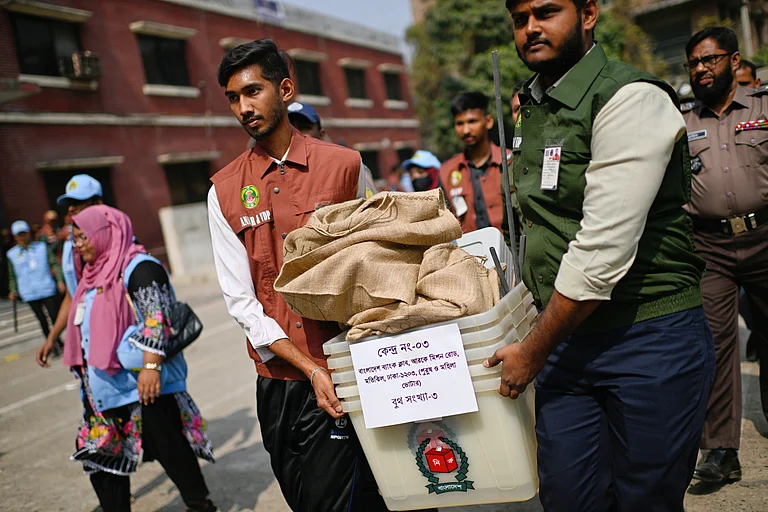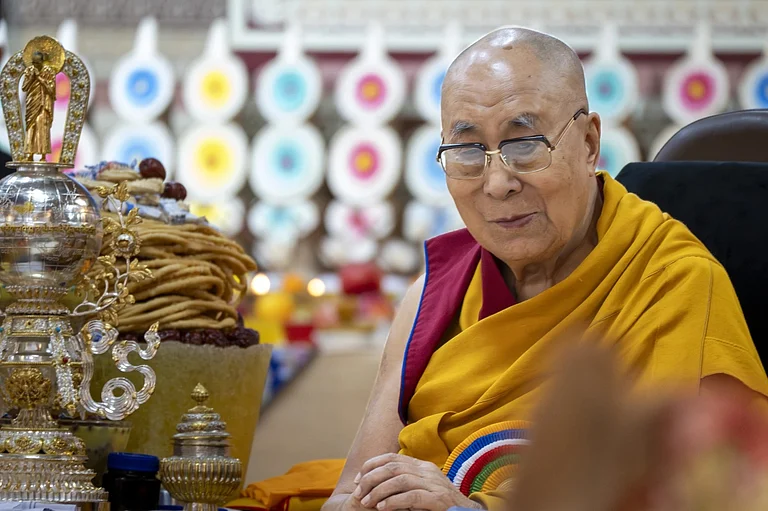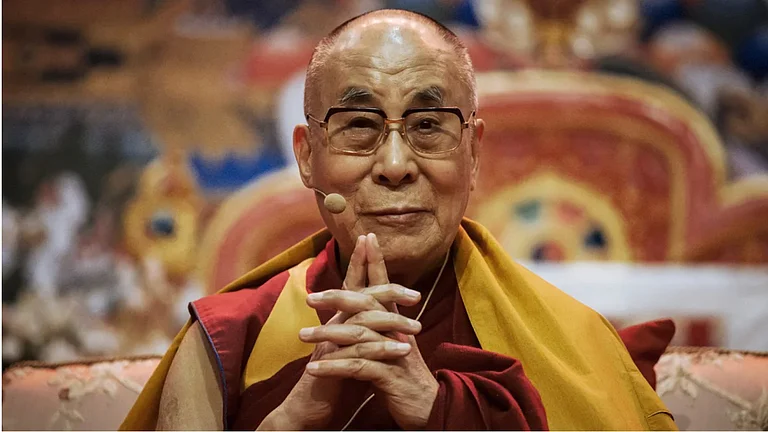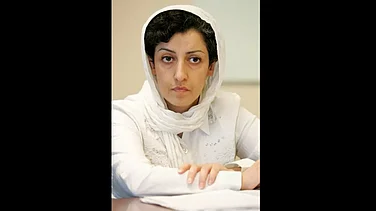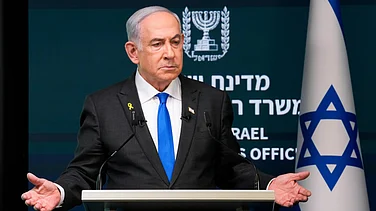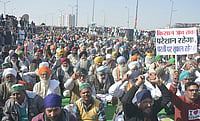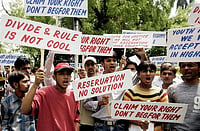The Tibetan Government-in-Exile has said the Chinese government will intervene in the succession of the 14th Dalai Lama.
However, the Government-in-Exile has also said that it has worked out a plan for a democratic transition of the Dalai Lama, the spiritual leader of Tibetan Buddhists across the world.
The Tibetan Government-in-Exile is based in Dharamshala, Himachal Pradesh. It's formally called the Central Tibetan Administration (CTA).
Since 1959, the Dalai Lama has been living in India. He arrived in India along with a large number of his followers to escape Chinese repression after a failed Tibetan uprising. The uprising was in response to Chinese invasion of Tibet and 1949-50 and subsequent occupation.
Since Beijing controls Tibet and consider it an inherent part of China, it also says it will appoint the next Dalai Lama. This is opposed by Tibetans.
What has CTA said on Dalai Lama's succession?
CTA' President Penpa Tsering in an interview with PTI pointed out that a replay of the 1995 appointment of a rival Panchen Lama by the Chinese government while a boy chosen by the Dalai Lama as the incarnate of the Lama was whisked away from the public eye. He said something similar can be expected with the Dalai Lama's succession.
He told PTI, "What happens after the present Dalai Lama is no more, is a big challenge for the Tibetans, especially if the Sino-Tibetan conflict is not resolved. We believe China will definitely interfere with the succession process of the Dalai Lama...They have been preparing for that for the last 15 years."
Tsering, who also holds the title of Sikyong, stated that the Chinese government issued a "diktat" in 2007 on the need for it to be involved in the succession of all reincarnate Lamas.
He said, "This was done, aiming at using religion as a political tool...(Even) though China should not have any role nor any other government. They (Chinese) intervened in 1995 when they chose a boy (Gyancain Norbu) as the Panchen Lama. The boy recognised by His Holiness (the Dalai Lama) as Panchen Lama (Gedhun Choeyi Nyima) was whisked away and we still have no news of whether he is alive."
Nyima has not been seen by any independent observer since May 17, 1995. While the Chinese government claims he lives a "normal" life, Tibetan exiles and human rights groups believe that he is being held at a "Chinese gulag as a prisoner of conscience".
Tibetan Buddhists believe that the soul of a high Lama or "living Buddha" after his death may be reborn as "soul boy" and can be found through the interpretation of arcane signs.
"Communist China professes not to believe in religion, yet it wants to interfere in what is a purely a religious function," said Tsering, adding that the Dalai Lama in jest has said that if the "Chinese government is so interested in re-incarnation, it should study Tibetan Buddhism".
To prepare the world and Tibetans for the day when the 14th Dalai Lama passes away, a six-point plan has been prepared, said Tsering, adding that the cornerstone of the plan is a democratic transition.
What has Dalai Lama said on succession?
The Dalai Lama is not a person but a designation of the spiritual leader of Tibetan Buddhists. The current Dalai Lama is the 14 in the line and each is considered to be a reincarnation of the first.
The original name of the current Dalai Lama is Lhamo Thondup. He was anointed as the successor of the 13th Dalai Lama at the age of four.
The Chinese government says it will appoint the Dalai Lama as it controls whereas the Tibetans, particularly those in exile, reject this. The earlier example of Panchen Lama cited above is a template that China is expected to follow with the Dalai Lama too, where the traditionally elected Dalai Lama is expected to be replaced by the China with the one appointed by Beijing.
However, the 14th Dalai Lama has repeatedly said it's not necessary that the next Dalai Lama would be from Chinese-controlled Tibet. There is already a precedent for it. The 6th Dalai Lama was born in present-day Tawang of India in Arunachal Pradesh.
The 14th Dalai Lama has also said it's not necessary that the institution will continue at all after him. He told this writer and his fellw students in 2019 that he will leave a will behind before his passing.
"The reincarnation of the Dalai Lama, the future of the Dalai Lama, is ultimately in my own hands. At the time of my death, I will write some will. So my rebirth, I think, will somewhere [be in the] Buddhist community. As early as 1969, I made clear even [that whether] the institution of Dalai Lama should continue or not [is] up to Tibetan people. Reincarnation is not important. It’s important that Buddha’s teachings remain," said the Dalai Lama to this writer and his fellow students in 2019 at his residence in Dharamshala.
Publicly, the Dalai Lama has also said his successor can also be a woman.
The Dalai Lama has also said he might appoint his successor before his death or hold a referendum.
"If a woman reveals herself as more useful the lama could very well be reincarnated in this form," said the Dalai Lama in 2007 as per his website.
The same article further notes, "The comment follows his surprising remarks last week that he might choose his successor before his death, or even hold a referendum on whether he should be reborn at all. 'If people feel that the institution of the Dalai Lama is still necessary, it will continue,' he said.'
The comment was of particular interest as the Dalai Lama is traditionally selected by a committee of monks as per age-old norms.
How is the Dalai Lama selected?
Technically, the Dalai Lama is 'found' or 'discovered' as Tibetan Buddhist monks search for the reincarnation of the previous Dalai Lama.
The current Dalai Lama was found at the age of two in Taktser village in Tibet's Amdo province. He belonged to a farming family.
Following the death of the 13th Dalai Lama, a group of monks set out to discover the successor. They were helped by a number of signs.
The Dalai Lama's website lists the two signs:
- The head of the embalmed body of the 13th Dalai Lama, who had died in 1933, turned from facing south to the northeast.
- Shortly after that, the Dalai Lama's Regent had a vision in the waters of the sacred lake Lhamoi Lhatso. It's said he clearly saw the Tibetan letters Ah, Ka and Ma float into view, followed by the image of a three-storied monastery with a turquoise and gold roof and a path running from it to a hill.
He also saw a small house with strangely shaped guttering. The Regent was sure that the letter Ah referred to Amdo, the northeastern province, so it was there that the search party was sent.
Following these signs, the monks arrived at Kumbum monastry, which was three-storied as seen in the vision. The monks soon began to search neighbouring villages and soon zeroed in on the house of the future Dalai Lama. They disguised themselves as commoners and requested permission to stay for the night, which was granted to them. They then observed the youngest child in the house, the future Dalai Lama.
The two-year-old boy identified the monks despite their disguise.
"The child recognized him and called out “Sera lama, Sera lama”. Sera was Kewtsang Rinpoche's monastery," says the Dalai Lama's website.
The monks returned a few days later for further tests.
"This time they brought with them a number of possessions that had belonged to the 13th Dalai Lama, together with several similar items that did not belong to the Thirteenth Dalai Lama. In every case, the infant correctly identified those belonging to the 13th Dalai Lama saying, 'It's mine. It's mine'. This more or less convinced the search party that they had found the new incarnation. It was not long before the boy from Taktser was recognized to be the new Dalai Lama," says the website.
However, since the journey to Tibet's capital Lhasa took time, it was only in 1940 that he formally took charge as the 14th Dalai Lama.
As per Tibetan Buddhist traditions, a similar process should be adopted for the discovery of the Dalai Lama. However, it is not possible as the Communist Party of China (CPC) controls Tibet and Tibetan Buddhists are not at liberty to freely search for the reincarnation.
The Dalai Lama and exiled Tibetans
While the religious leadership remains with the Dalai Lama, the political leadership of the Tibetan community since 2011 has devolved on the directly-elected Sikyong or president of the Tibetan Government-In-Exile. Till 2011, the temporal head of the Tibetan Government-In-Exile elected by the 'Kashag' or Parliament-in-Exile was 'Kalon Tripa' or prime minister with the Dalai Lama as the overall head.
Tsering said, "The Dalai Lama who was influenced by Indian democracy, which he saw for the first time during a visit in 1956-57, has been preparing us for a democratic future."
He said the Dalai Lama found that while India's democratically functioning Parliament allowed people to speak freely, the Chinese apex legislature of which he was a high official was a place where none could speak their mind, prompting him to adopt democracy in running the affairs of the Tibetan exiles.
"That is why I, a farmer's son, have been able to take on the mantle of the Tibetan political leader... We will carry forward democratically," he said.
(With PTI inputs)







